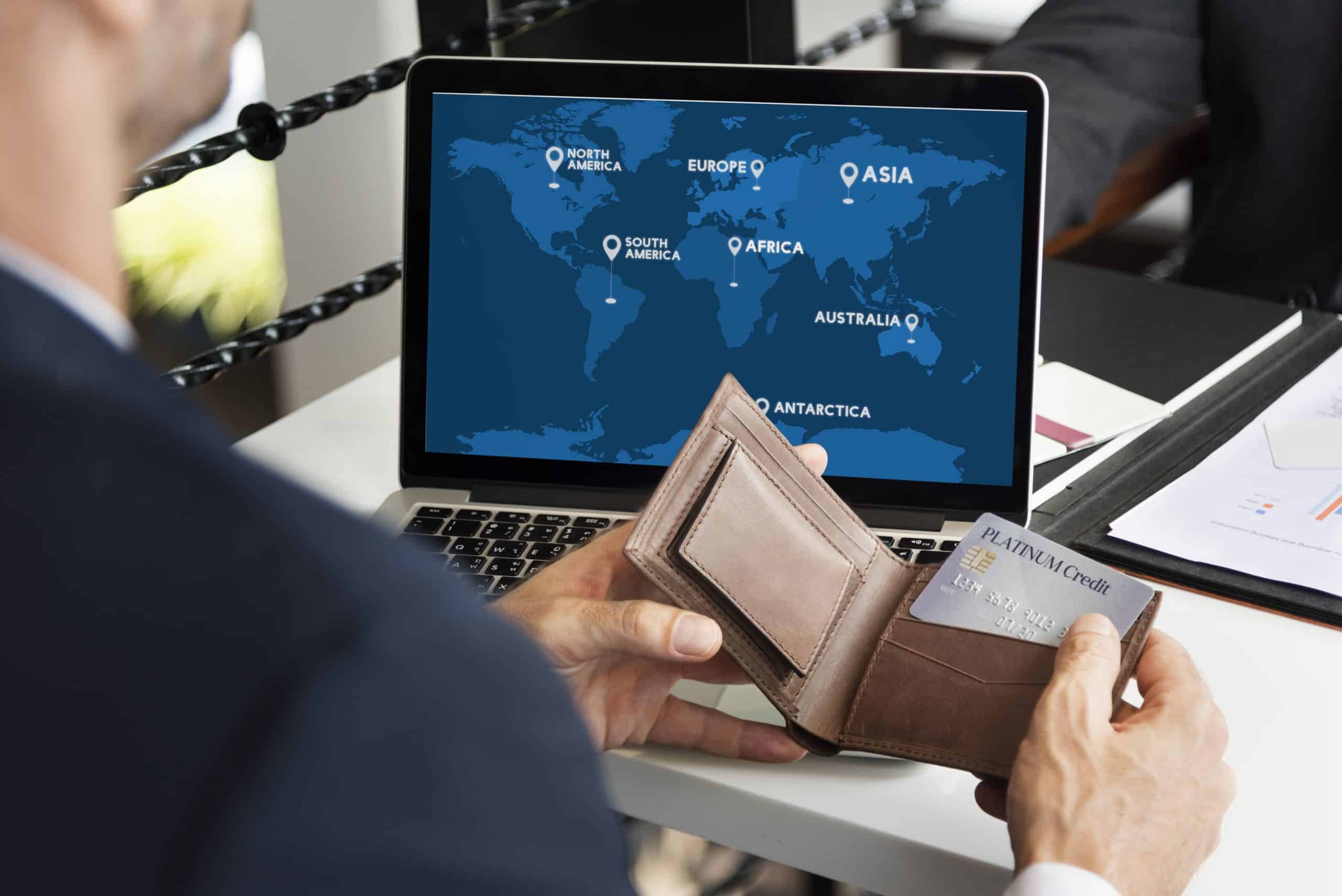Bank Accounts in the UAE: Everything You Need to Know to Choose the Right Bank

Bank Accounts in the UAE: An Overview of the Banking Landscape
The United Arab Emirates boasts a robust and diverse banking system, combining both local and international banks that cater to a wide range of financial needs. Regulated by the Central Bank of the UAE, the sector is designed to maintain financial stability and instill consumer confidence in the market.
This regulatory body ensures transparency, safety, and the smooth functioning of the entire financial infrastructure.
Why Opening a Local Bank Account is Essential
For residents and expatriates alike, having a local bank account is more than just convenient—it’s often necessary.
Local accounts allow for everyday transactions such as paying bills, shopping, and transferring money. More importantly, under UAE labor law, salaries must be paid directly into a local bank account.
Furthermore, holding an account unlocks access to loans, credit cards, and mortgage services—vital tools for managing personal and family finances.
Traditional vs. Digital Banks in the UAE
The UAE’s banking sector features a blend of conventional brick-and-mortar banks and modern digital-only banks. Traditional institutions like Emirates NBD and ADCB offer in-person customer service, physical branches, and comprehensive financial products. Many clients prefer these banks for their reputation, reliability, and personal service.
On the other hand, digital banks such as Liv. and N26 represent a new wave of fintech innovation. These banks operate entirely online, offering seamless banking via mobile apps and websites. While they are more convenient and cost-effective, digital banks may lack the personal touch or extensive product range of their traditional counterparts.
Leading Traditional Banks in the UAE
Emirates NBD – A Retail Banking Giant
As one of the largest financial institutions in the UAE, Emirates NBD provides a full spectrum of retail banking services, from checking and savings accounts to credit cards, loans, and investment solutions. Renowned for its tech-forward approach, the bank offers an advanced mobile app that enhances user experience and banking efficiency.
ADCB & FAB – Abu Dhabi’s Premier Banks
Abu Dhabi Commercial Bank (ADCB) and First Abu Dhabi Bank (FAB) are key players in the capital’s financial ecosystem. ADCB is known for its personalized services and excellent customer care, while FAB, created through a merger of First Gulf Bank and National Bank of Abu Dhabi, is now the largest bank in the UAE by assets.
Mashreq Bank & RAKBANK – Specialized Banking Services
Mashreq Bank stands out with its commitment to innovation and customer satisfaction. It was among the first in the region to implement advanced banking technologies. RAKBANK, on the other hand, is a favorite among small businesses due to its affordability and accessible retail banking products.
Each of these institutions contributes significantly to the country’s economic stability, catering to both residents and the expat community with a wide variety of tailored solutions.
The Rise of Digital Banking in the UAE
Popular Digital Banking Options
The UAE is quickly adopting digital financial services in response to global fintech trends. Notable names in the digital banking space include Liv.
by Emirates NBD and N26. These platforms offer user-friendly mobile interfaces, fully online account setup, and streamlined digital services.
Pros and Cons of Digital Bank Accounts
Advantages:
- 24/7 Access: Use your mobile phone to make payments or transfers anytime, anywhere.
- Fast Setup: Account registration is often completed within minutes.
- Lower Fees: Reduced operational costs often mean fewer or no service charges.
Limitations:
- Customer Support: Limited to online or chat-based channels, which may be a drawback for users who prefer face-to-face interaction.
- Product Range: Some services, like mortgages or tailored investment advice, might not be offered digitally.
Traditional vs. Digital Banks: A Quick Comparison
Traditional banks provide comprehensive financial solutions with in-person assistance, making them ideal for individuals seeking broad support and trust-based relationships. In contrast, digital banks shine in terms of speed and ease of use.
Your ideal choice will depend on personal needs—whether you prioritize convenience or require a wider array of financial services.
| Topic | Traditional Banks | Digital Banks |
|---|---|---|
| Customer Service | In-person support at branches | Online chat and mobile apps |
| Fees | Higher fees for services | Lower or no service fees |
| Account Setup | Can take up to two weeks | Can be completed in minutes |
| Product Range | Comprehensive, including loans, mortgages | Limited products, mainly savings and transfers |
| Accessibility | Multiple branch locations and ATM network | Available 24/7 through mobile and web |
Opening a Bank Account in the UAE
Required Documentation
To open a bank account in the UAE, the required documents differ for residents and non-residents.
For Residents:
- Emirates ID
- Proof of local address (utility bill, rental agreement)
- Employment letter or work contract
- Valid passport
For Non-Residents:
- Valid passport
- Proof of foreign address
- Reference letter from your current bank (in some cases)
Steps and Bank-Specific Requirements
Most banks follow a similar procedure:
- Complete an application form (online or in-person)
- Submit the required documents
- Attend a branch appointment (if required)
- Make an initial deposit (amount varies)
Some banks, especially digital ones, may allow full online onboarding.
Timelines and Fees
Opening an account can take as little as 48 hours for digital banks, while traditional banks might take up to two weeks due to manual document verification. While account opening is often free, some banks charge a monthly maintenance fee unless a minimum balance is maintained.
Understanding these nuances ensures a smoother onboarding process and better adaptation to the UAE’s financial system.
How to Choose the Right Bank in the UAE
Key Evaluation Criteria
Fees:
- Maintenance charges and waiver conditions
- ATM withdrawal and transfer fees
- Credit card annual charge
Services:
- Investment and insurance options
- Multilingual customer support
- Mobile and online banking features
Accessibility:
- Number and location of branches
- ATM network availability
Rewards and Benefits Programs
Many banks offer attractive rewards to new and loyal customers:
- Airline Miles: Convert card points into miles for flights
- Cashback: Get a percentage of your spending back
- Discounts: Access exclusive deals on restaurants, shopping, and entertainment
Special Considerations for Expats
Expatriates should consider:
- Multilingual support teams
- International remittance services with competitive exchange rates
- Salary-compatible banking packages
These features can make managing your finances abroad more seamless and efficient.
Frequently Asked Questions (FAQ)
What Documents Are Needed to Open a Bank Account?
For residents:
- Valid passport
- Residence visa
- Emirates ID
- Proof of address
- Salary certificate or employment letter
For non-residents:
- Valid passport
- Proof of home country address
- Bank reference letter
- Non-resident declaration (if requested)
What Fees Should I Expect?
Common banking fees in the UAE include:
- Account maintenance fees
- ATM withdrawal charges
- International transfer fees
- Inactivity penalties
Be sure to check each bank’s pricing policy before committing.
How Do I Close a Bank Account or Make International Transfers?
To close an account:
- Visit the branch or use online services
- Submit a closure request form
- Settle outstanding dues
- Await confirmation
For international transfers:
- Use authorized banking platforms
- Expect variable fees and transfer times
- Ensure currency compatibility and exchange rate transparencyTo read more content on the subject see here





